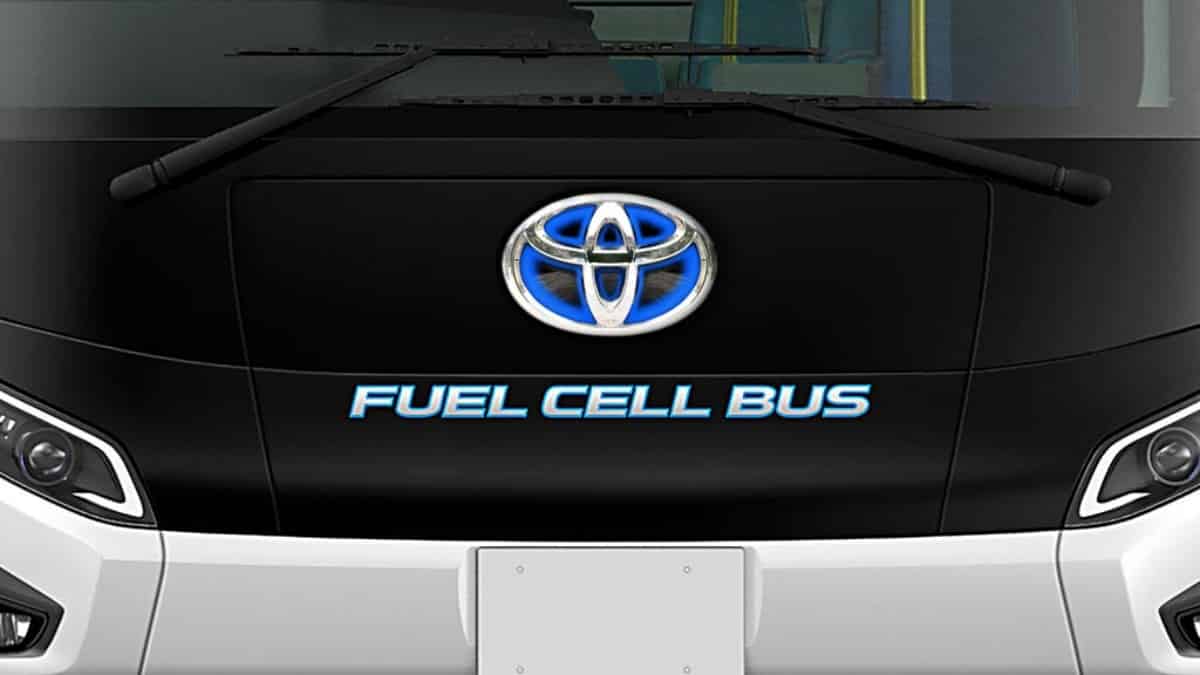As the world moves towards greener and cleaner energy, electrification is a common norm. The world’s largest automakers are in a race to electrify their entire range. One of these behemoths is Toyota, who in a project led by Isuzu and Hino, is working on a BEV flat-floor bus.
With this new bus, they’re aiming to revolutionize public transport. But that’s not all as they’re also bringing hydrogen power to buses as well. These companies are making efforts to achieve carbon neutrality by the year 2050. So, what is the new technology featured on these buses?
Contents
Toyota and Carbon Neutrality
First, we’ll discuss a bit about Toyota’s future plans. The company certainly made headlines when they showed disinterest in EVs as vehicles of the future. Toyota reportedly wasn’t too keen on vehicle electrification despite calling for carbon neutrality and reliance on clean energy.
The company basically said that they were more interested in creating FCEVs. These are vehicles based on hydrogen fuel cells and Toyota has already created one under the Mirai nameplate. Toyota is also testing out the Corolla H2 on the race track. This is a vehicle that is powered by hydrogen combustion.
Overall, Toyota does have plans to become completely carbon neutral by 2050. What’s different is that they’ll rely on hydrogen instead of electrical energy, for the most part. The company will make an electric fleet for the short term. This applies to their subsidiaries Lexus, Hino, Subaru etc.
Toyota and Co. Are Making an Electric Bus
It was revealed n0t long ago that these automotive giants are to make BEV flat-floor buses. They’re aiming to complete the development by the year 2024. This is to be a joint venture between Isuzu and Hino, with Toyota also playing a large role. The aim is to create zero emission buses for the public.
Toyota has showcased their fleet of BEVs for the future in an event some time ago. The exterior of this bus should be similar to the ones shown in it.
What Are Flat-Floor Buses?
Flat-floor buses are the ones that have a single flooring level. This is unlike the traditional bus which has multiple flooring levels from the start of the bus to its rear end. These buses are considered to be the future of the bus industry. It should be noted that safety is a key factor.
There is a problem regarding the safety of the passengers on board. The step buses reportedly cause injuries to some passengers who climb on and get off the bus via the step. When the flat-floor buses will be developed, they’ll be non-step to prevent injuries.
These buses should become a norm everywhere once Toyota launches them. They’ll obviously be reliable as a product of these three large automakers. Toyota vehicles are also quite popular due to their easily found spare parts.
If you’re looking for genuine Toyota parts, you can find a reliable supplier for them here: https://sts-global.com/toyota-parts.
Toyota and Friends Are Also Developing a Hydrogen Bus
As mentioned above, Toyota sees hydrogen as a much better alternative to petrol/gasoline. This is because of its abundance and lower refuelling times, plus the need to develop less technology. Naturally, Toyota and Co. are going to work on a hydrogen fuel cell bus as well.
This bus will be based on the aforementioned style of buses. Also, the tech used in it will be similar to the one found in the SORA fuel cell bus. This is a concept by Toyota and Hino. It is quite the safe alternative to regular buses. It comes with an effective collision warning system and emergency stop.
The tech used for both of these buses will ensure that public transport benefits greatly. There are many emissions from regular buses. Due to the large number of these buses on the road, these emissions are multiplied. Making the electric bus and later the hydrogen fuel bus a norm will do wonders.
Isuzu and Hino’s Plans for a Greener Future
The automotive world is full of alliances these days as automakers accelerate to achieving carbon neutrality. One of these alliances is comprised of Isuzu and Hino. These two Japanese motoring giants already have their own plans for relying on sustainable energy as well.
Just like Toyota has its Environmental Challenge 2050, these two companies are also aiming for a similar milestone. Hino Motors for example, has its Environmental Milestone 2030. Similarly, Isuzu is working hard to achieve its very own Environmental Vision 2050.

